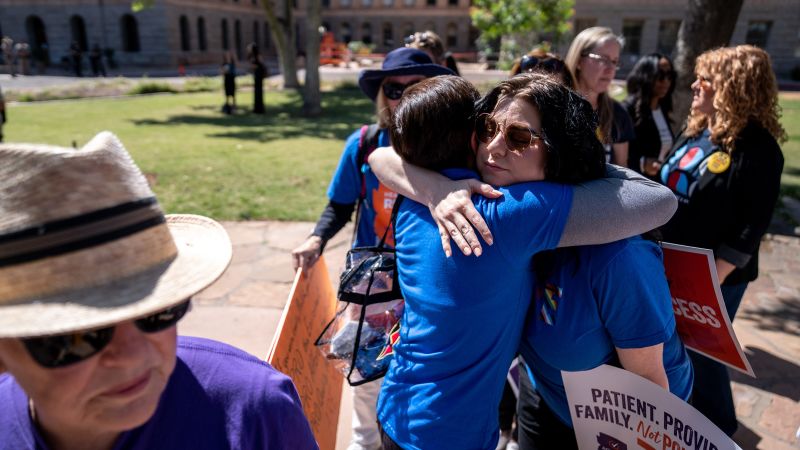The recent Supreme Court ruling in Arizona has sparked a debate about abortion laws that date back to the 1860s, before the era of modern medicine and women’s suffrage. Justice Samuel Alito cited these old laws in the majority opinion overturning Roe v. Wade, arguing that a woman’s constitutional right to obtain an abortion is not deeply rooted in the nation’s history. This ruling has shifted the focus from women’s rights back to states’ rights, leading to a patchwork of abortion access across the country.
The Dobbs v. Jackson Women’s Health Organization decision replaced Roe v. Wade, allowing states to decide their own abortion laws. This has created a divide between abortion rights states and abortion ban states, with Arizona’s recent decision to uphold a law from 1864 being just one example of the fallout. Former President Donald Trump has expressed support for states’ rights in deciding abortion laws, promising to stay out of their way if reelected.
Arizona’s Supreme Court upheld the old abortion law because the state legislature has not explicitly created a right to elective abortion. However, they stayed the decision for 14 days, allowing for further legal challenges. The debate over abortion laws is likely to be a major issue in the upcoming presidential election and in individual states like Arizona, where the issue remains highly controversial. The decision to uphold a law from the 1860s underscores the ongoing debate over states’ rights versus women’s rights in the context of abortion access.


